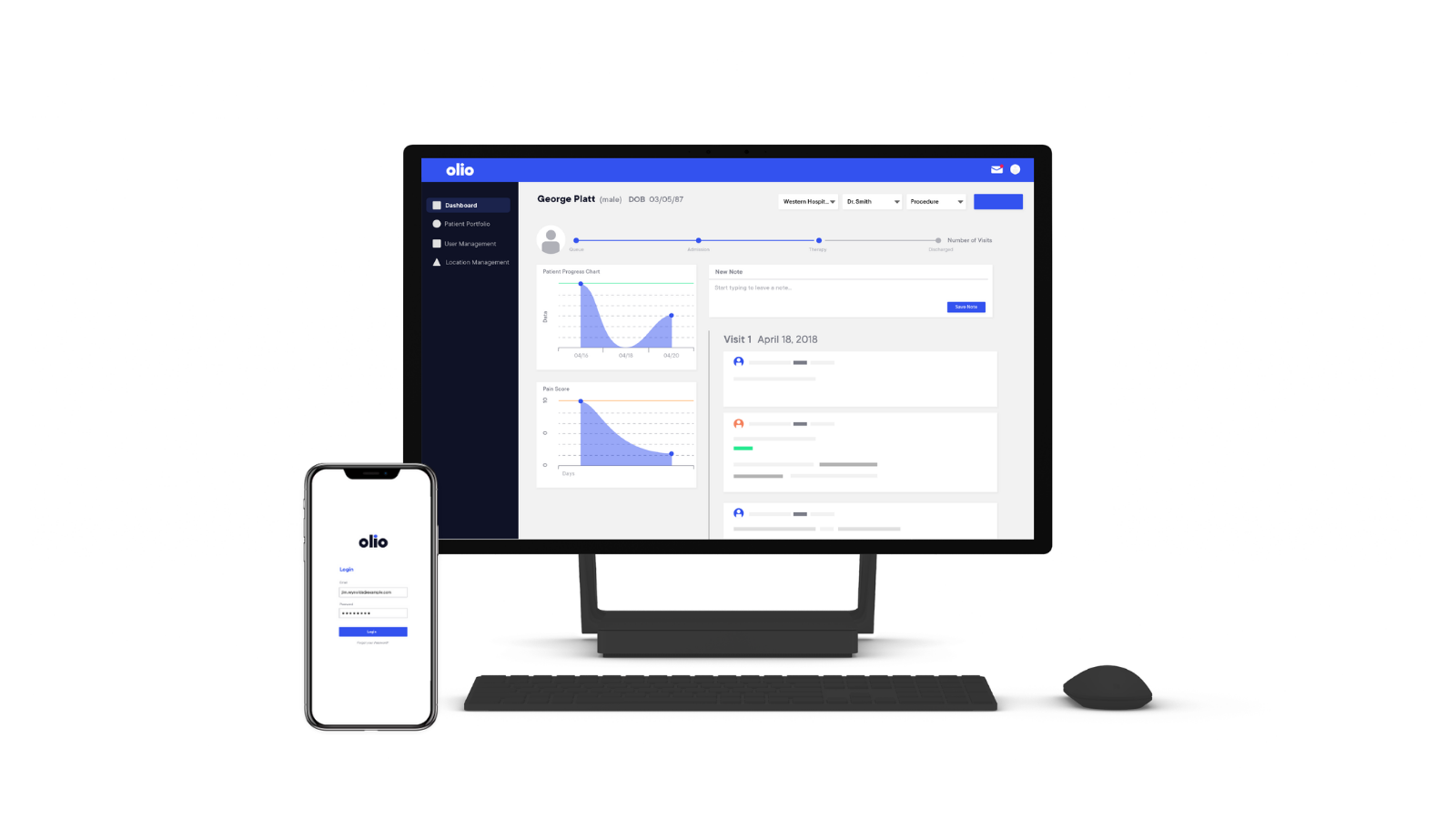National Launch, $2.5M Boost Olio
 Olio says its technology streamlines communication between the surgical team and post-acute providers along the patient’s entire journey.
Olio says its technology streamlines communication between the surgical team and post-acute providers along the patient’s entire journey.
Subscriber Benefit
As a subscriber you can listen to articles at work, in the car, or while you work out. Subscribe NowA central Indiana man who broke his hip five years ago—then broke his other hip very recently—certainly faced a medical misfortune, but is also a testament to technology transforming patient care. Central Indiana Orthopedics surgeon Dr. Joseph Jerman says the man stayed in the nursing home for three months after his first operation, and his family was anticipating another “miserable” 90-day stay after the same surgery on his other hip—but he was home in ten days. While Jerman points to a few reasons why, he gives much credit to Olio Health, a Carmel-based tech startup that helps him “have a good finger on the pulse” of patients after they leave the hospital.
“We’ve cut our average length of stay for a hip fracture—which is kind of the benchmark—more than in half,” says Jerman. “If you would’ve told me this a year or two ago, I would’ve thought you were absolutely out of your mind.”
Jerman says the orthopedics specialty has a solid track record in controlling care—and its related costs—in the acute (hospital) setting, but there was “a pretty significant void in what we were doing from days six to 90.”
It’s increasingly important to monitor patients throughout the post-acute setting as the healthcare industry shifts its focus to episodic care. Rather than being reimbursed for each service delivered to the patient, hospitals are being paid based on the entire episode of care—the day of surgery and the 90-day recovery period afterwards, for example. That means siloes of care must come tumbling down, explains Olio Chief Executive Officer Ben Forrest.
“A patient’s pathway has a lot of touch points, and all of those different providers are siloed within their own walls; the patient is treated at the hospital, then leaves the hospital and gets care provided by an entirely different group of people,” says Forrest. “Olio sets out to bring those different siloed environments together, so they can collaborate digitally and work cohesively in one shared environment. And ultimately, the patient gets the best care they possibly can.”
Olio’s technology focuses on streamlining communication between hospital or physician teams and post-acute providers along the patient’s entire journey. The software provides an electronic method to monitor individual patients; the teams set specialty-specific care goals for the recovery plan, dashboards track patients’ progress and acute and post-acute teams can communicate instantly in real-time. Olio says the secure technology replaces traditional clunky methods, such as exchanging voicemails, emails and other non-HIPPA compliant communications.
“Each day, we can go through every one of [our] patients in a skilled nursing facility and make sure everything is on track,” says Jerman. “If there are any issues—someone has fallen off course, is having a problem with wounds or not progressing well in therapy—it’s all in this app; we can just push a button. Previously, it would’ve taken a day or two to call someone, leave a message and wait. It’s cut through an extraordinary amount of red tape.”
The SaaS startup, which surpassed its goal and closed a $2.5 million seed funding round in March, recently added a “patient escalation” function within the software designed for the post-acute team.
“With the click of a button, it gives them the ability to notify the hospital or referring physician team that there’s a problem going on. We wanted to build an electronic way for them to raise their hand and say, ‘I’m having a little trouble here, can you help us out?’” says Forrest. “With push notifications or email notifications about a problem, we’re getting providers centered around that patient in under 30 minutes. It’s truly helping both sides of the aisle in a very, very effective way.”
Jerman says the feature prevents unnecessary ambulance trips, ER visits and hospital readmissions—all with heavy cost burdens for both the patient and provider.
“We’ve built the product now to be able to go to our hospital customer and say, ‘Tell us what patients you’re discharging, where you see better collaboration as a true patient benefit, and we will enable you to get automated feedback from your post-acute partners that says how that patient’s doing,’” says Forrest. “We feel like we can deliver that to them in two months’ time. That’s innovating, and that’s what doesn’t exist right now.”
Forrest says Olio’s $2.5 million seed funding round surpassed the startup’s goal and sets the stage to grow to a team of 80 central Indiana employees by 2020.
Forrest believes Olio has a competitive advantage when recruiting highly-demanded employees in Indy’s growing tech scene.
Jerman says the patient escalation function in Olio’s software has already proven to be valuable.
